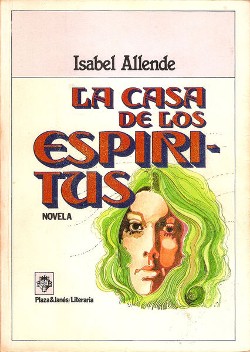 |
| Image courtesy Plaza & Janés |
Hoo boy, where do I start with this one?
I guess I need to start with the fact that I am an American transplant to Sweden (for those of you who might have just found me). My Swedish is passable, though on a daily basis I almost exclusively use English. I write here and elsewhere in English, I work on my literary aspirations in English, JV and I default to English, and I work in English editing and tutoring. The Swedes who comprise my new social circle use English with me, though if the conversation switches to Swedish it's not a problem. Really, the only time I use Swedish is with the parents of some of my tutees, themselves immigrants but who didn't acquire too much English before they moved here, or who feel more comfortable in Swedish than in English.
In other words, I have to make a concerted effort to expose myself to Swedish. The easiest way to do this is to read books in Swedish. Novel concept, right?
So when my Internet book club decided that March's book would be Isabel Allende's
The House of the Spirits, I decided to challenge myself and read the Swedish translation rather than the English translation. (I think translation between languages is certainly fruitful and possible but I am team Original Language whenever possible.) Because if I'm reading a translation
anyway, it might as well be a translation that benefits me somehow.
The book took me around two months to read. More than that, really, considering that I just finished it about a week ago.
So I want to preface everything I have to say about this book with the caveat that I read it through the hazy veil of a non-native language. Or non-fluent. (Though I would consider myself fluent in Swedish, I still have a ways to go. But I think someone who is technically a "non-native" speaker can acquire a native-level fluency in a language.) There were, no doubt, nuances that I missed or things that I completely misunderstood. But on a broad strokes, big picture level, I had no problem following what was going on.
It's hard for me to separate my enjoyment of the book from my pride at having finished a substantial novel in Swedish. This would be the longest thing I've ever read in Swedish by a not insignifcant margin. But even so, I also enjoyed the process of reading itself—mostly.
I also want to say that despite being a huge international celebrity and a writer (apparently?) discussed in schools in Sweden, Allende never came up for me in my studies. Not in high school, not in university. When I mentioned what I was reading to JV, he said, "Oh yeah, Allende. I haven't read anything by her but she's supposed to be good." I would have said, "Who's that?" So I feel like I am woefully underschooled in international contemporary literature, and that if you're in the same position as me, then this review is for you.
Because have you heard of Gabriel Garcia Marquez? Of course you (probably) have, because he is a Big Deal author and people can't stop talking about him. So how is it that Marquez is a household name for me but Allende isn't?
I bring up Marquez because he is comparable, and because his
100 Years of Solitude is comparable to
The House of the Spirits. Both deal with a nation's tumultuous history by viewing it through the framework of a large and influential family. Both have the elements of magical realism that have become the hallmark of Latin American literature.
I hated
100 Years of Solitude, but I at least enjoyed reading
The House of the Spirits. Over the entire course of
100 Years of Solitude, it felt like Marquez was reaching for some point that was always
just out of reach. (I felt the same way about way-overhyped
American Gods.)
The House of the Spirits, on the other hand, put forward an idea of justice and something almost like karma quietly, without straining, and with more elegance. Her characters were nuanced, each with their personalities and their principles, so that despite a huge cast of characters you never confused them with each other.
The only part of the book I did not enjoy, even taking my pride at Swedish reading comprehension into account, were the sections of the book from the perspective of the family patriarch, Esteban. As a writer, I have to give Allende all the kudos in the world for sketching someone so vividly and creating someone so repulsive and yet so real. But as a reader, I could not endure Esteban and his violence and his snobbery. (And also rape! Not that people shouldn't write about rape; I actually think Allende writes about it very well in that she refuses to engage in salacious details or use it as character development. But I'm at a point in my life where I'm not in the mood for men, even fictional ones, defending and meditating on their entitlement to women's bodies.) So I quickly learned to just skip the sections written in the first person perspective and nothing of value was lost.
The House of the Spirits is another tally mark for my participation in the
Women's Classic Literature Event. I'm still torn on whether or not I want to count it towards my modified TIME Top 100 Novels list. Would it be cheating? =/
If you are trying to diversifying your reading habits, if you have a burning curiosity about Latin American literature, or if you love long, multi-generational epics, then
The House of the Spirits is very much worth your time.



















